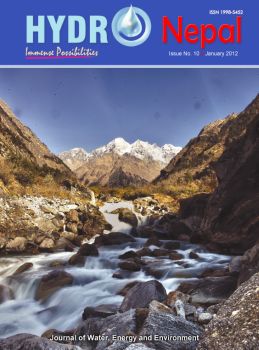Increasing and Sustaining Agricultural Productivity through Land Improvement Approach: A Mitigation Measure to Climate Change
DOI:
https://doi.org/10.3126/hn.v10i0.7117Keywords:
Land rectangulation and consolidation, irrigation, agriculture, NepalAbstract
Due to greenhouse gas effect temperature around the world will increase (0.06ºC/yr.) resulting in increased evapo-transpiration and increased need of crop irrigation pressurizing ground water resources and its judicious use. An experiment in a deep tubewell area with improved land and irrigation management undertaken in early 1980’s has shown that doubling of agricultural productivity is possible. This system can be taken as mitigative/adaptive measure of climate change.
This paper involves experiences of managing tubewell irrigation schemes through improving basically these development parameters in the irrigation command area:
- Land improvement (land consolidation, rectangular shaping and leveling),
- Irrigation canal efficiency improvement,
- Introduction of crop water management, and
- Evolving Farmers Group into a Co-operative Organization- for managing land collectively.
The evaluation has shown that through this intervention approach yields of paddy, wheat, maize and pulse can be doubled in the irrigated areas. This concept might be useful to modify the present policy and program vision of irrigated agriculture development in Nepal through enhancing water productivity a mitigation measure of the effects of climate change. Also, this approach is applicable to surface irrigation schemes of Terai and hills of Nepal.
DOI: http://dx.doi.org/10.3126/hn.v10i0.7117
Hydro Nepal Vol.10 January 2012 66-72
Downloads
Downloads
Published
How to Cite
Issue
Section
License
The copyright of the articles and papers published is held by HYDRO Nepal Journal.
The views and interpretation in this journal are those of author(s), and HYDRO Nepal does not bear any responsibility for the views expressed by authors in the journal.




